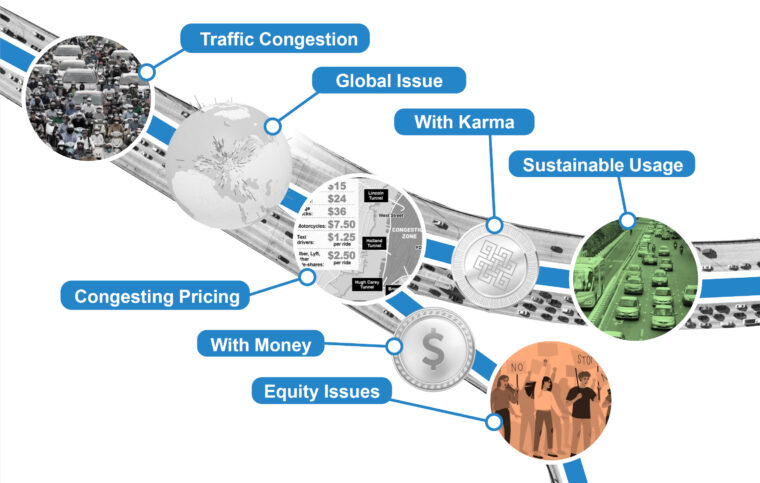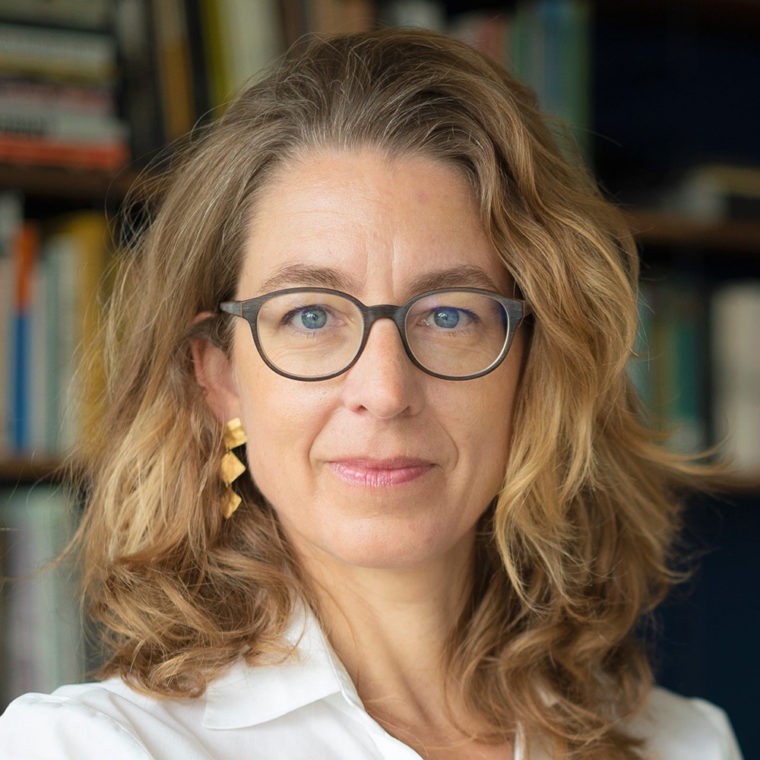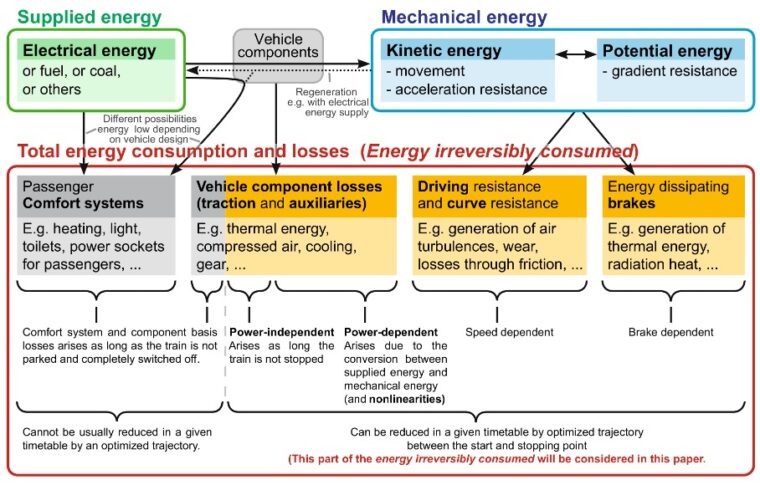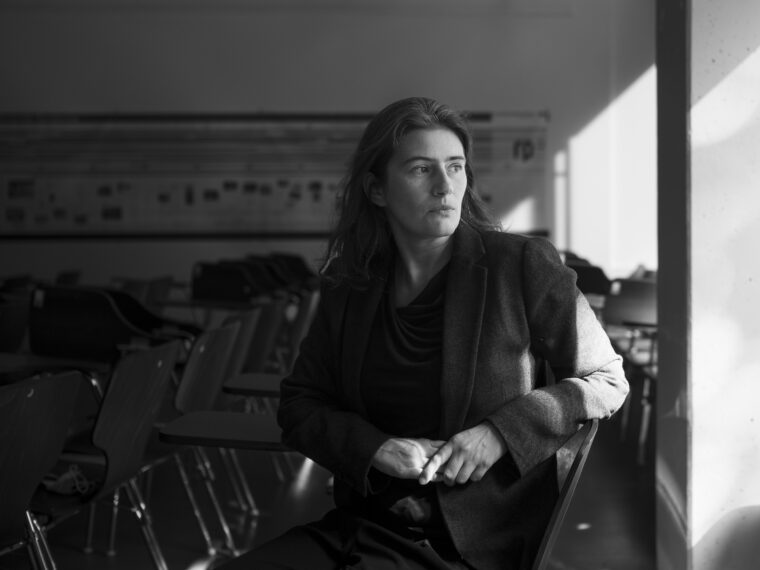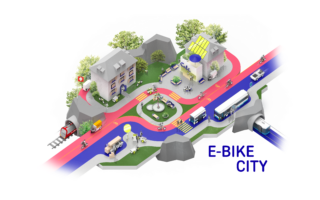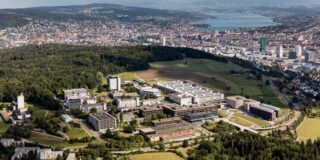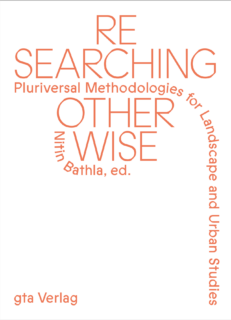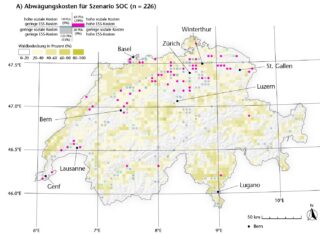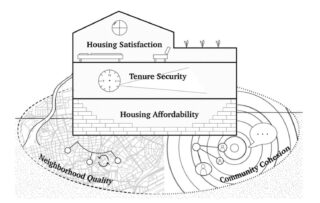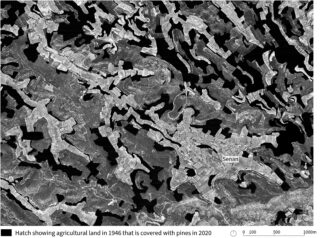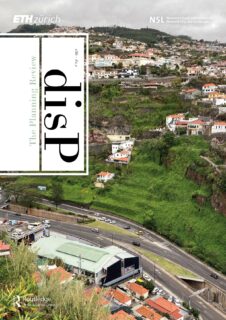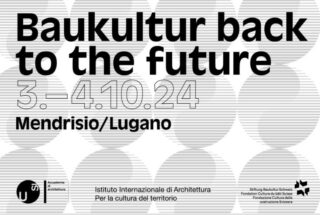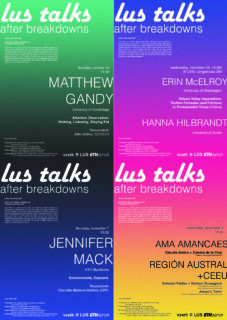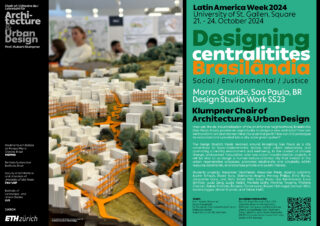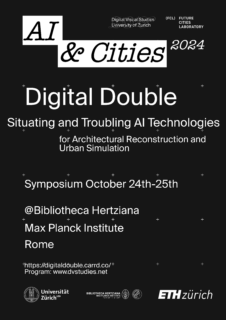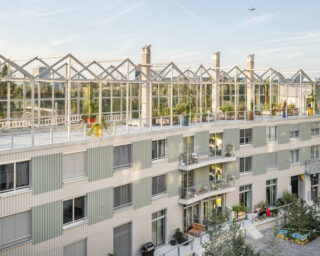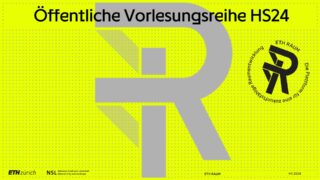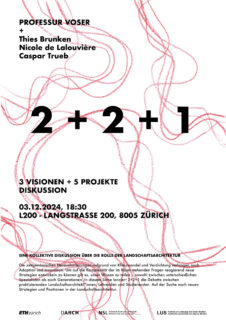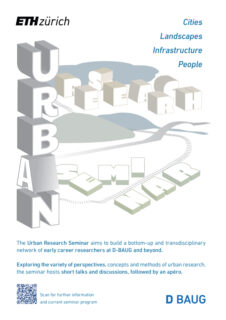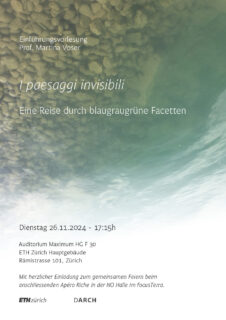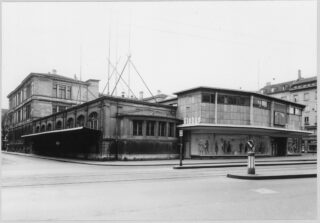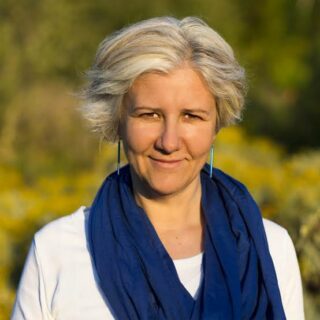Dear Readers,
Various forms of mobility contribute differently to resource and energy consumption. This newsletter considers topics of fairness in resource distribution and ways to reduce energy consumption while increasing efficiency. In an interview, Martina Voser describes how Switzerland can be understood as a condensed laboratory for landscape design and planning. We also introduce Eva Heinen, who addresses means of confronting congestion and over-reliance on cars. Wishing you a stimulating read!
Kevin Riehl | Traffic Engineering, Michail Makridis & Anastasios Kouvelas
Most cities do not charge for driving. Do you think that is fair? It causes externalities such as noise and pollution to residents and shops. In peak-hours of congestion, valuable life time, money, and fuel are wasted. Do you think driving in the city should be priced? Do you that is fair? This might systematically exclude the poor from the streets. How can we balance these distributional conflicts?
More
Martina Voser was a Visiting Professor at ETH Zurich from 2021. At the end of 2023, she was appointed Full Professor of Landscape Architecture. She talks about the profound changes that the Swiss landscape is facing and how her chair can develop the necessary transformation processes together with the public sector and experts in the field, .
More
Michael Nold & Francesco Corman | Transport Systems (TS)
Energy modelling is extensive. Different detailed modelling approaches can lead to significant simulation deviations. Detailed modelling leads to additional energy savings.
More
Eva Heinen is the newly appointed Professor for Transportation and Mobility Planning in the Institute for Transport Planning and Systems (IVT). In the interview, she discusses how strategies to reduce car use and address congestion affect social groups differently. More
Luke Harris, Johanna Just, Camila Medina Novoa, Cara Turett | Chair of Being Alive, Teresa Galí-Izard
The NSL Colloquium will take place February 26-28 2025 at ETH Zürich and publishes an open call for submissions until November 8, 2024. The colloquium will investigate the relationship between the design and maintenance of living systems, seeking to cultivate practices, terminology, and theoretical insights into approaches that attempt to maintain otherwise. More
David Zani & Bryan T. Adey | Infrastructure Management
Cost-benefit analysis is a tool frequently used in project appraisal to justify the implementation of infrastructures. Due to insufficient recorded data, the construction costs and safety benefits of urban bicycling infrastructure are difficult to estimate, weakening the appraisal and implementation of such projects. In this research, we conducted a study in Zurich to estimate construction costs and safety benefits of a city-wide cycling network, and showed that such a network has a high benefit-cost ratio (between 9 and 31).
Sustainable Construction | Guillaume Habert
We are thrilled to announce the Sustainable Built Environment Conference (SBE25), which will be held from June 25 to 27, 2025 in Zürich. The conference topic is “Shaping Tomorrow: Systems Thinking in the Built Environment”. Releasing over 40% of global greenhouse gas emissions and consuming over 40% of primary resources, the built environment needs an urgent transformation towards climate neutrality and circularity while hosting a booming humanity in dignified conditions under climate change. Abstract submission deadline: 31 October 2024.
Kay W. Axhausen, Verkehrsplanung | Hubert Klumpner, Architektur und Städtebau | David Kaufmann, Raumentwicklung und Stadtpolitik
Did you miss the NSL Forum and Cycling Research Board «Digital Twins for Europe’s Future Mobility», on September 4th? The video link is now available on the event website! In addition, for a quick read and an overview of the workshops, you can download the «Collective Manifesto for a More than Human Design Culture».
This is a selection. Find a complete list in the ETH Zürich Research Collection.
Nitin Bathla, Hg.
Methodological, epistemic, and ontological borders have long prevented landscape and urban studies from engaging in transdisciplinary dialogue, sensuousness, and affect. Researching Otherwise uncovers possibilities for deploying sensory, collaborative, and restitutive methodological tools to craft spaces for producing knowledge from pluriversal worlds. These methods connect researchers and their objects of investigation in new ways to empower restitutive and regenerative futures “otherwise.”
Original contributions stem from research methods based on drawing, photography, sounding and listening, filmmaking, walking, and cartography. They reveal journeys of specialists and their companions while navigating through multi-species walks, engaging in cinematic and performative ways of knowing, submerging in ocean worlds, unsilencing bank vaults and troubled architectural histories, and exploring collaborative ethnographic investigations with refugees.
Boris Salak, Reto Spielhofer, Marcel Hunziker, Felix Kienast, Ulrike Wissen Hayek, Adrienne Grêt-Regamey
The Swiss energy system is set to undergo a significant transformation through the integration of photovoltaic (PV) and wind energy installations, as outlined in the Energy Strategy 2050. However, these installations impact public perception of the landscape and may lead to conflicts with various socio-economic or ecological interests. Additionally, forests are increasingly considered as potential contributors to the energy transition. More
Gabriela Debrunner, Katrin Hofer, Michael Wicki, Fiona Kauer, David Kaufmann
Problem, research strategy, and findings: Increasing numbers of urban dwellers face housing precarity in cities worldwide. We conceptualize housing precarity as a multidimensional phenomenon, using five different dimensions: 1) housing affordability, 2) tenure security, 3) housing satisfaction, 4) neighborhood quality, and 5) community cohesion. More
Michael Nold, Francesco Corman
The reduction of energy consumption is an increasingly important topic of the railway system. Energy-efficient train control (EETC) is one solution, which refers to mathematically computing when to accelerate, which cruising speed to hold, how long one should coast over a suitable space, and when to brake. More
Luke Harris
This paper proposes a methodology for designers to work in the extensive yet marginal landscapes that are produced as part of the process of agricultural intensification. More

Hubert Klumpner, Klearjos Eduardo Papanicolaou, Georgeen Theodore (eds.)
The publication features scholarly articles and interviews from leading experts working in various fields anchored in urban design and architecture. Each piece in the volume addresses the challenges and opportunities prompted by the SDG11, and by extension, the climate crisis. As a whole, the volume illuminates and showcases novel research and design approaches to deal with issues like safety, air pollution, inequality, geopolitics, post-war planning and other key topics for cities and communities. As a result, the volume addresses not only academics, city planners, architects and urban designers, but anybody for whom these issues are relevant. Drawing largely from examples in the Global South, where various forms of scarcity give rise to inclusive and sustainable solutions for the entire world, the volume aims to meet the challenge of the multi-crises of the 21st century through evidence-based experiences, case studies, and projects.
Further information
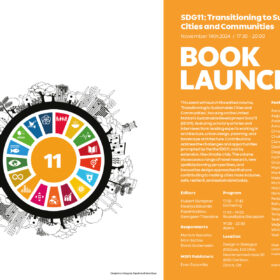
This is a selection. Head over to our News-Page for more.
3-4 October 2024 | Kolloquium | Mendrisio, Lugano.
More
10 October – 4 December 2024, 18:30-20:00 | ETH Zürich, Design in Dialogue Lab, Neunbrunnenstrasse 50.
More
21-24 October 2024 | St. Gallen, SQUARE, Guisanstrasse 20 More
24-25 October 2024, 09:00–18:00 | Symposium | Rome, Bibliotheca Hertziana – Max Planck Institute for Art History.
More
29. Oktober 2024, 16:00 – 17:30 | Mehrzweckraum, Westhof Dübendorf, Zukunftstrasse 13, 8600 Dübendorf
More
29. Oktober 2024 – 8. Januar 2025 | ETH Zürich, Hönggerberg
More
3. Dezember 2024, jeweils 18:30 | Zürich, Langstr. 200.
More
Sustainable Construction | Application Window: 1 – 30 November 2024.
More
6-8 November 2024, 09:00–18:00 | Symposium | ETH Zürich.
More
22. November 2024, 14:00 – 18:00 | ETH Zürich, HIL H 35.1
More
26. November, 17:15 | ETH Zürich, Hauptgebäude HG F 30 (Auditorium Maximum), Rämistrasse 101.
More
27. November 2024 | Kolloquium | ETH Zürich.
More
The Schelling Architecture Foundation awards the Schelling Architecture Prize biannually. In 2024, under the guiding principle of “Deep Transformations – Earth, Landscape, Architecture” the board of trustees has nominated three offices that leave classic professional profiles behind: Bureau Bas Smets from Brussels, LOLA Landscape Architects from Rotterdam and the Arquitectura Agronomia office of ETH and NSL professor Teresa Gali-Izard from Barcelona.
“Her Chair of Being Alive is already a kind of statement through its substantial name and deals with life cycles, living beings and the landscape as the basis of life for future generations,” writes the jury. She sees her task as a landscape architect to influence how people connect with these living systems. “Teresa Galí-Lizard provides radical impulses that can revolutionize our understanding of architecture and landscape.” The final selection of the winning office and the award ceremony will take place in November in Karlsruhe.
Researchers at ETH Zurich have been working with researchers from Ukraine and Germany to investigate how to rebuild Ukraine’s destroyed energy infrastructure based on renewable energy. They have determined that solar and wind energy would quickly deliver a distributed power supply system and prevent corruption. Article at the ETH News.
Redaktionsteam
Silvia Converso, Institut für Landschaft und Urbane Studien (LUS), Landschaftsarchitektur
Michiel van Iersel, Institut für Landschaft und Urbane Studien (LUS), Städtebau
Viera Klasovitá, Institut für Verkehrsplanung und Transportsysteme (IVT)
Klearjos Papanicolaou, Institut für Landschaft und Urbane Studien (LUS), Städtebau
Noelle Paulson und Claudia Gebert, Koordinationsstelle NSL, Chefredaktion
Maarten Van Strien, Institut für Raum- und Landschaftsentwicklung (IRL)
